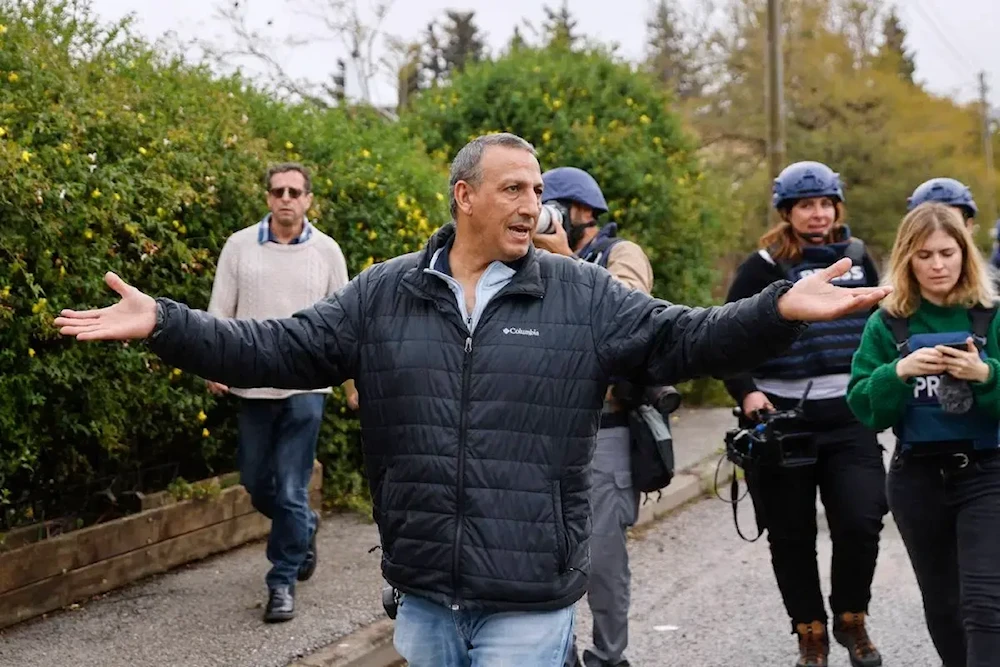Trust in IOF eroded amid 'poor agreement' with Lebanon: Metula head
Addressing the return of settlers to northern areas after their displacement to other regions, Azoulay emphasized that his primary concern was the security threat that remains unresolved.
-

David Azoulay, the head of the council in Metula, gesturers during a media tour organized by the Alma Research and Education Centre, in the deserted northern settlement near the border with Lebanon, on March 19, 2024 (JALAA MAREY/AFP via Getty Images)
David Azoulay, head of the Metula Settlement Council, expressed concerns to the Israeli newspaper Maariv about the deteriorating security situation in northern "Israel" and the growing distrust in the military, particularly in light of what he described as the "poor agreement with Lebanon."
Addressing the return of settlers to northern areas after their displacement to other regions, Azoulay emphasized that his primary concern was the security threat that remains unresolved.
He further revealed that "more than half of the council's homes were damaged during the war, with some completely destroyed," stressing that the settlement urgently needs "robust infrastructure to attract new residents to replace those who will not return."
Azoulay, who has served in his role for nearly a decade and is a former military officer, pointed out that public trust in the [Israeli] military has eroded significantly since October 7, 2023.
He said that there remains a lack of confidence in the Israeli military, particularly in intelligence capabilities, even with its actions in Lebanon.
The Israeli official was also critical of the ceasefire agreement with Lebanon and specifically faulted Prime Minister Benjamin Netanyahu for endorsing UN Security Council Resolution 1701, calling it "weak, unstable, and ineffective since 2006."
"When I look at the long term, I am deeply concerned," he said, expressing doubts about the agreement’s durability. Azoulay said he believes Hezbollah will "rebuild its capabilities and attempt its own October 7-style attack once the Israeli military withdraws from Lebanon."
In a related context, retired Major General Eliezer "Cheney" Marom, a former commander of the Israeli Navy, criticized the ceasefire agreement in earlier remarks reported by Walla.
Marom, who until recently oversaw the reconstruction of northern "Israel", argued that "Israel" rushed into the agreement under American pressure.
He added, "It appears the Americans exerted pressure on us, and we ended up with a poor agreement."
Read more: North is far from healed, despite end of war: Israeli media

 2 Min Read
2 Min Read








